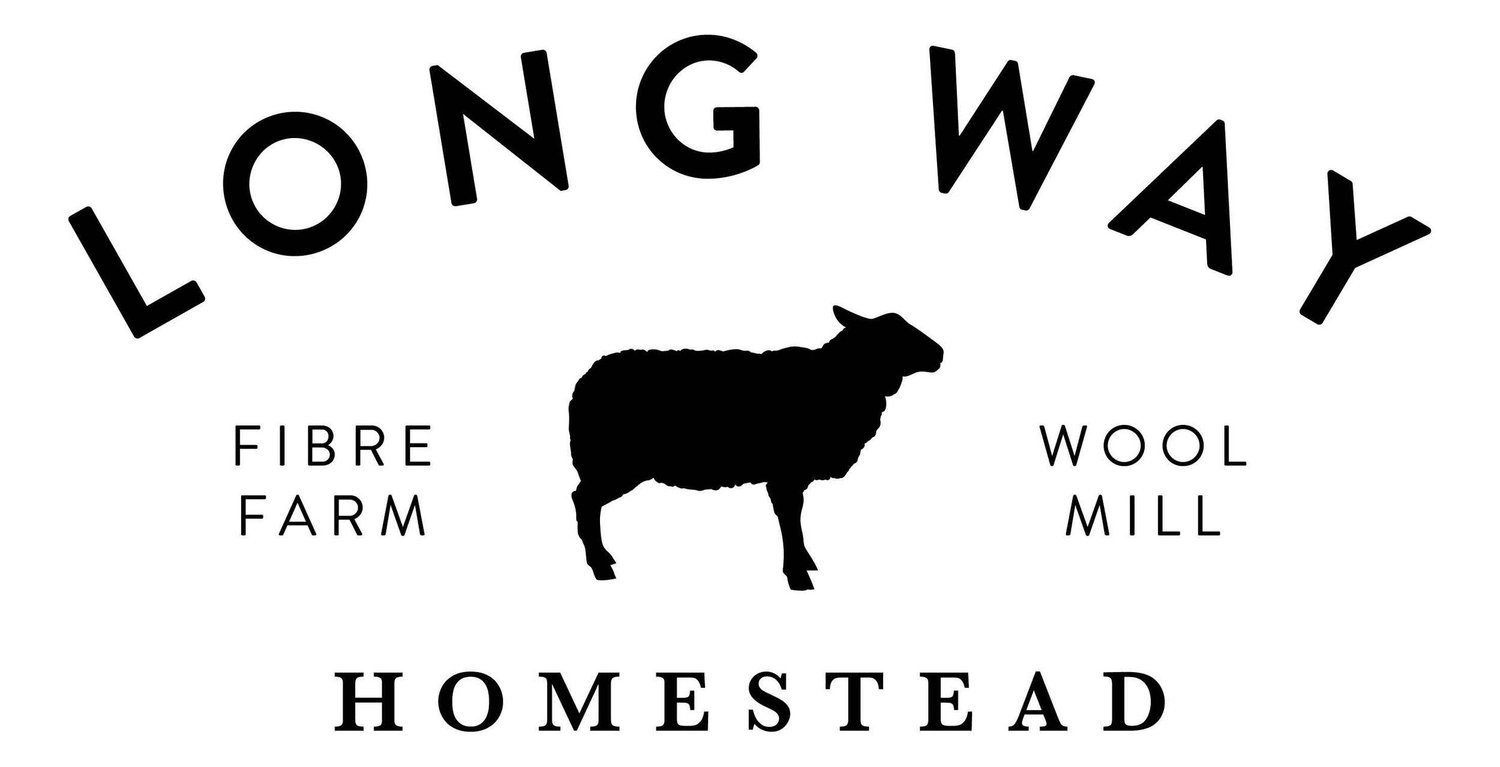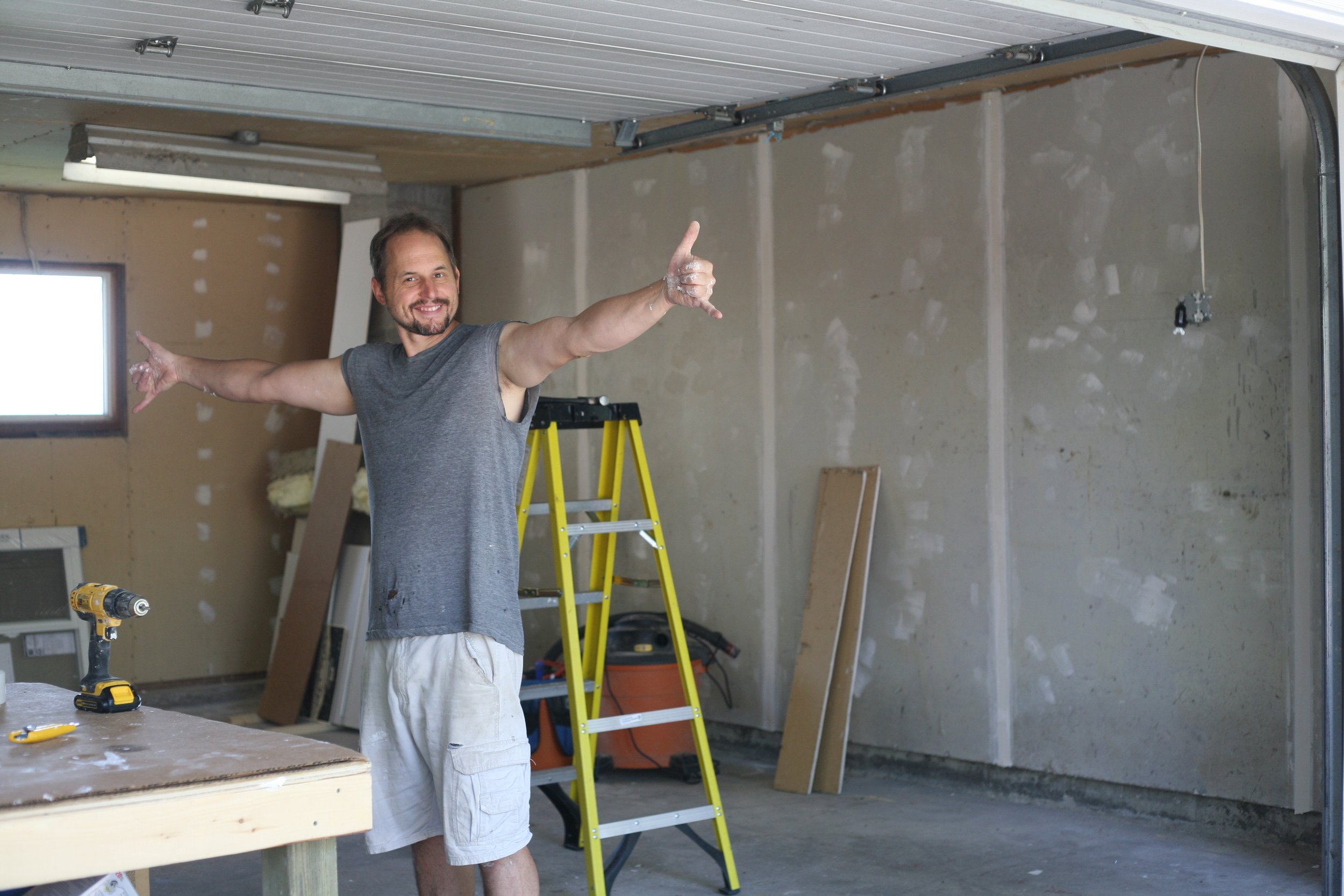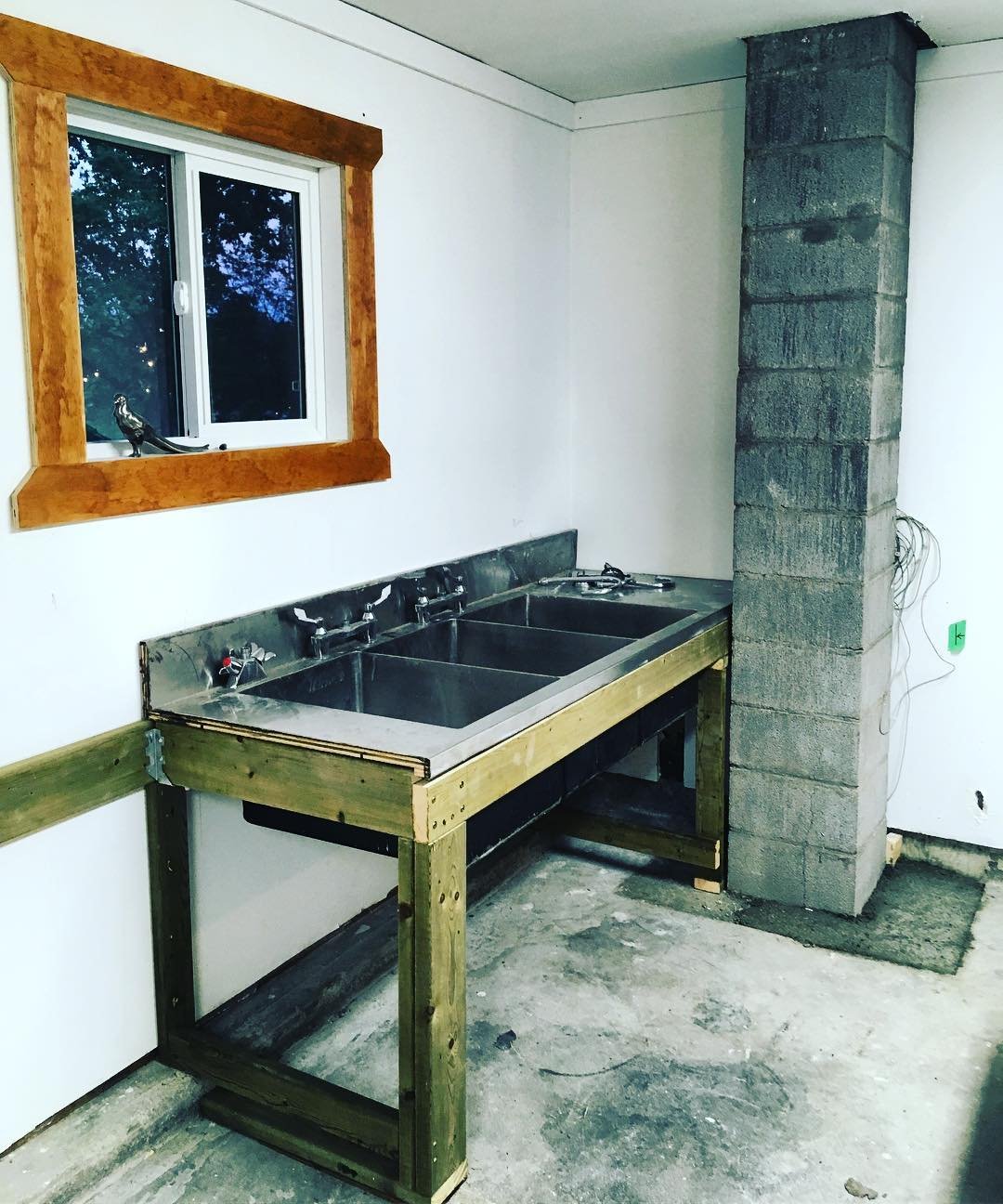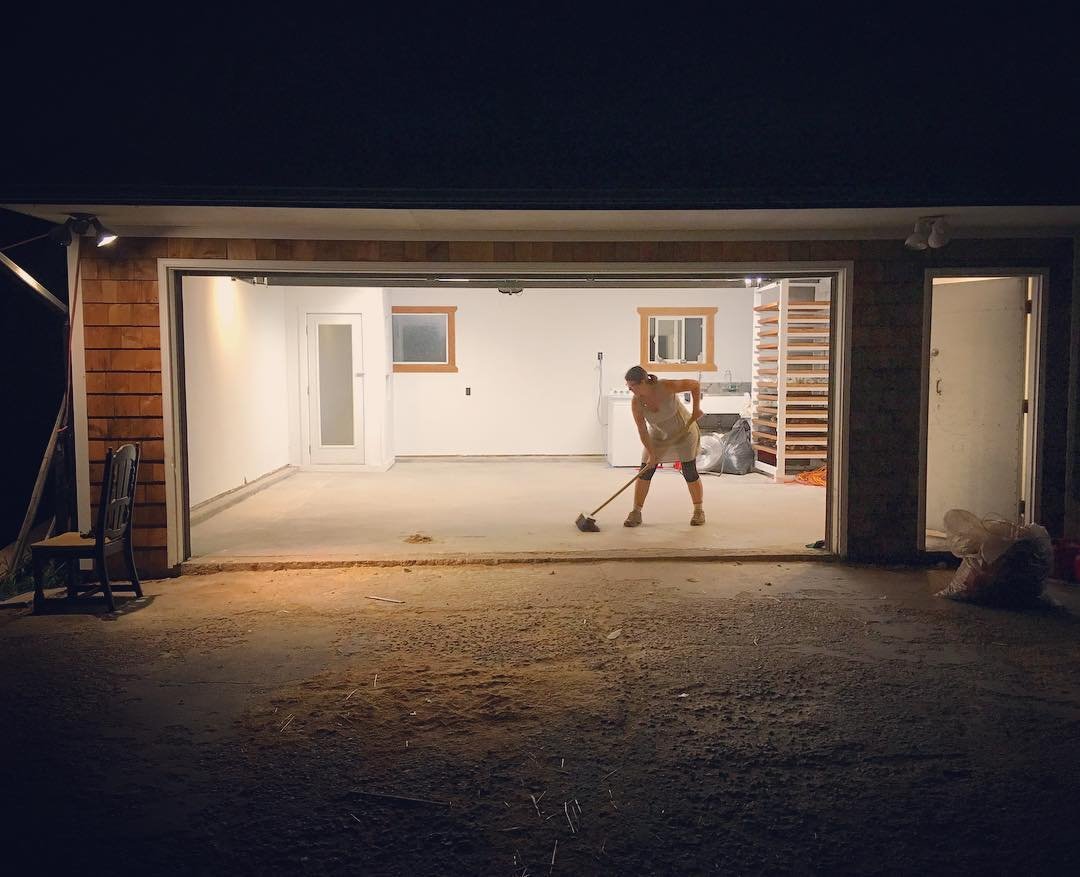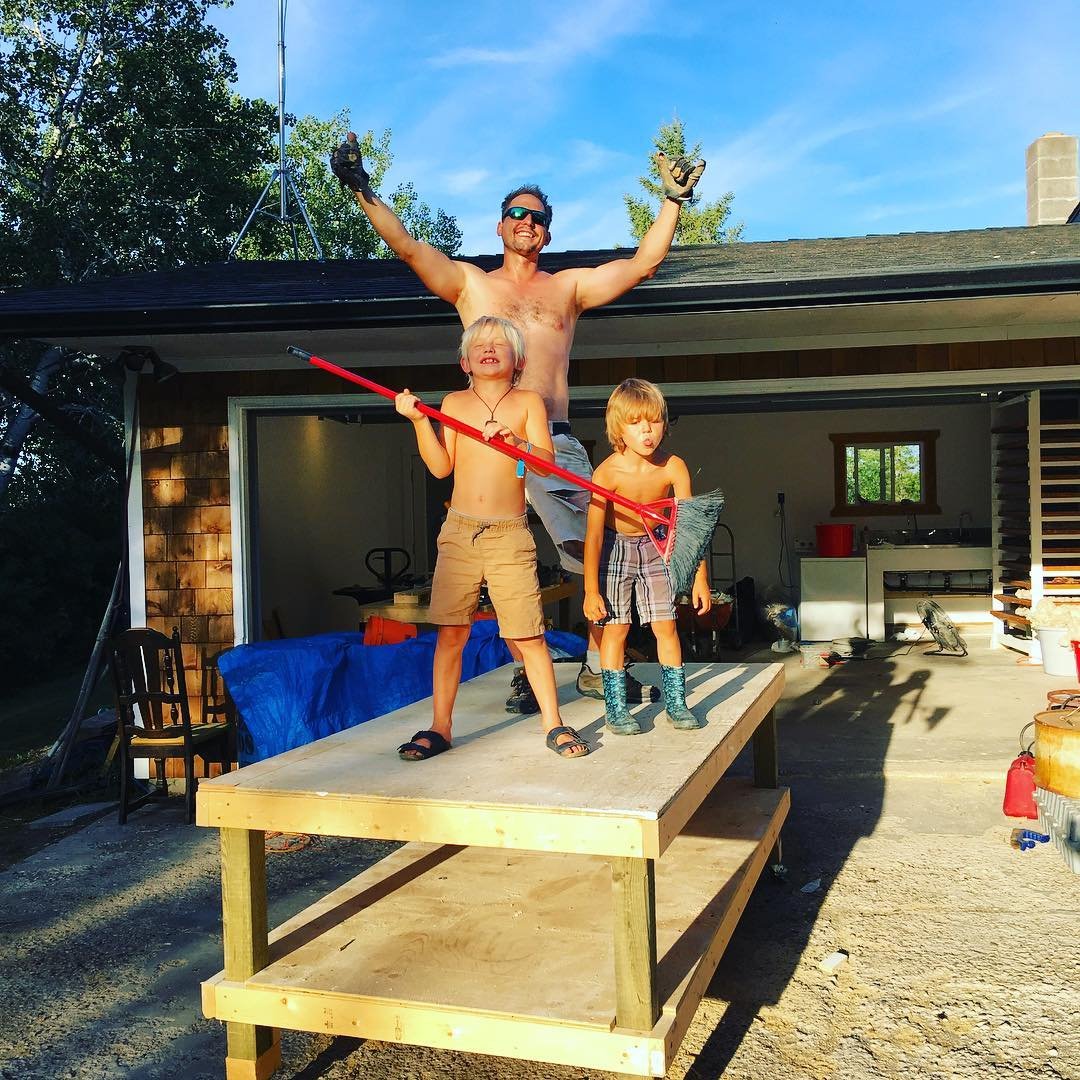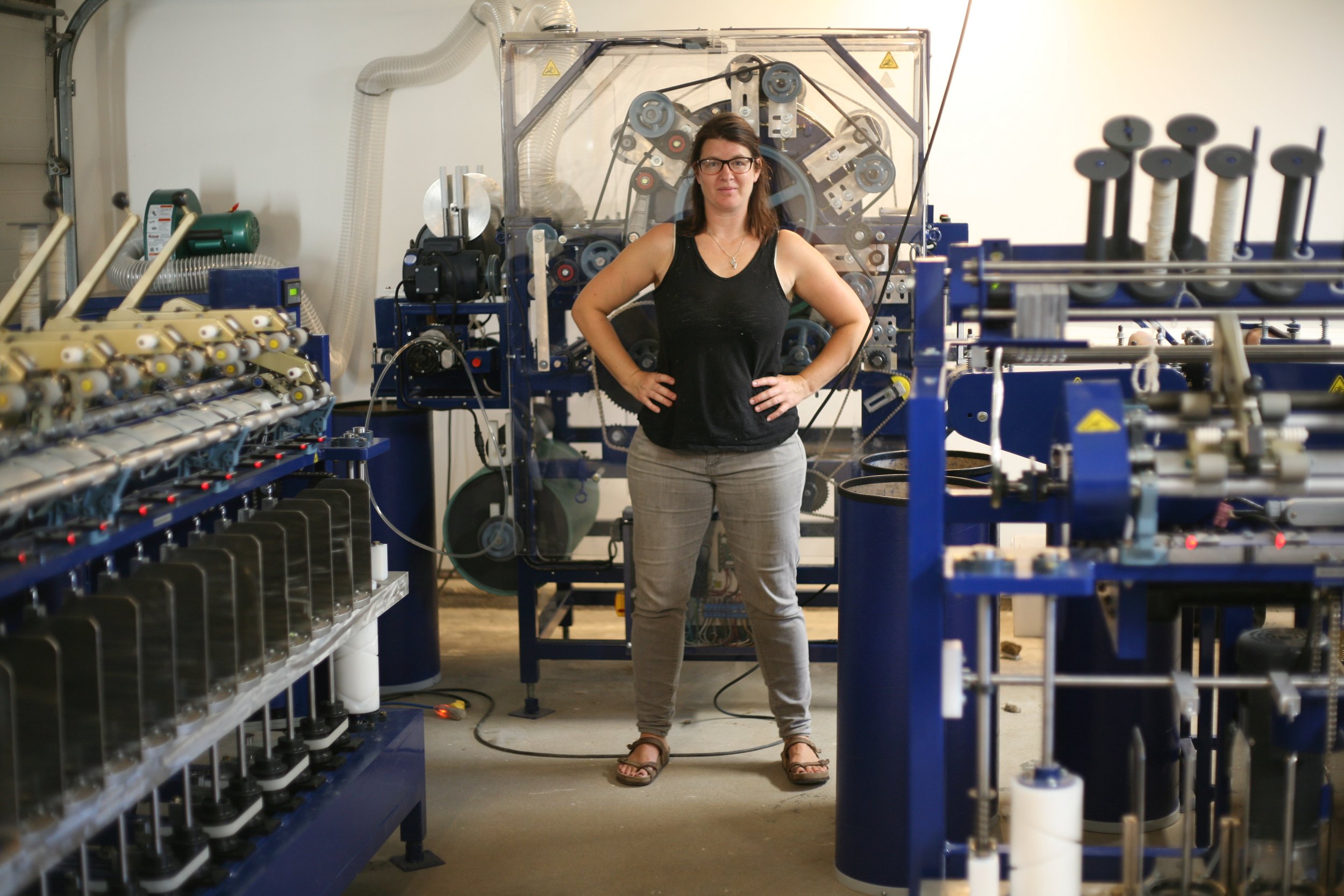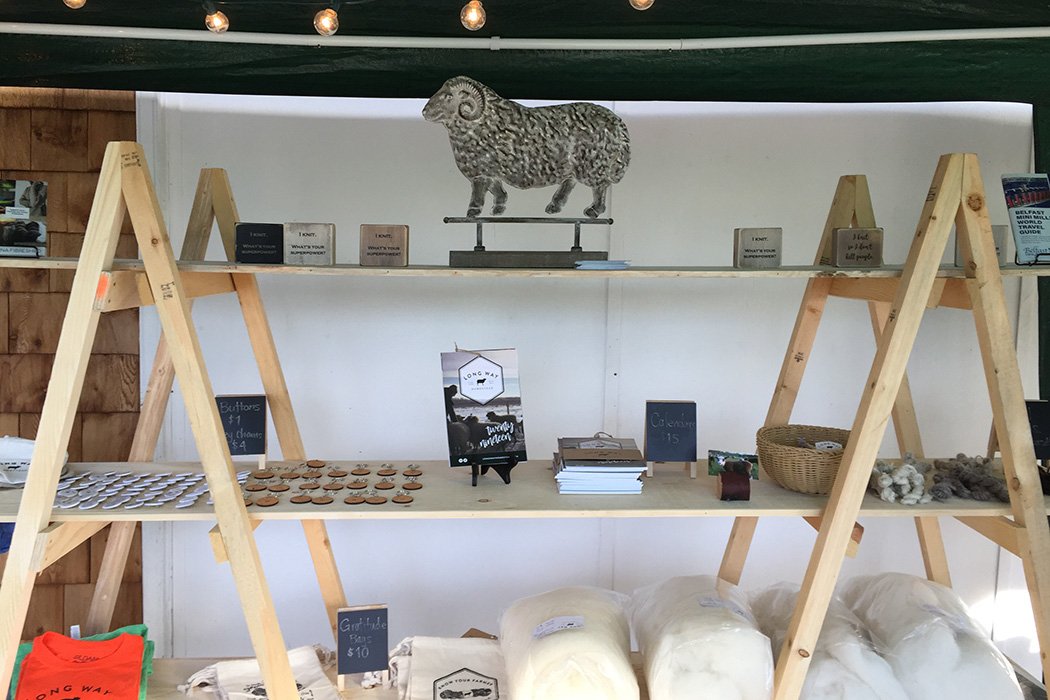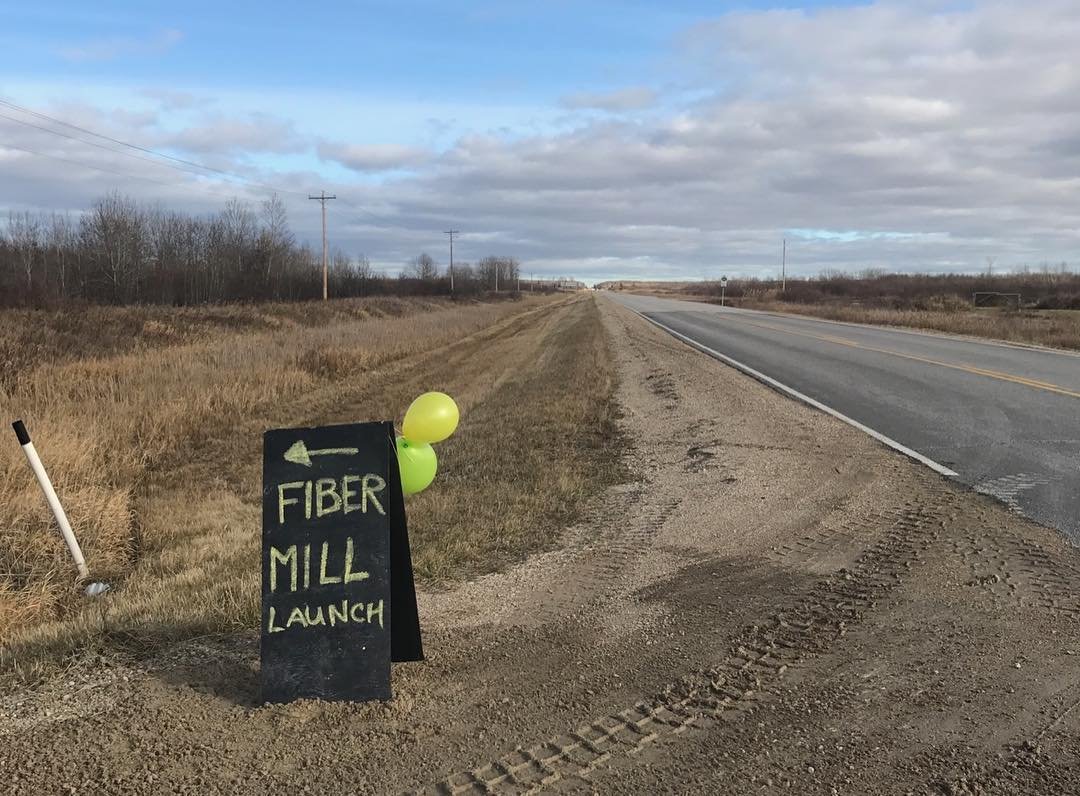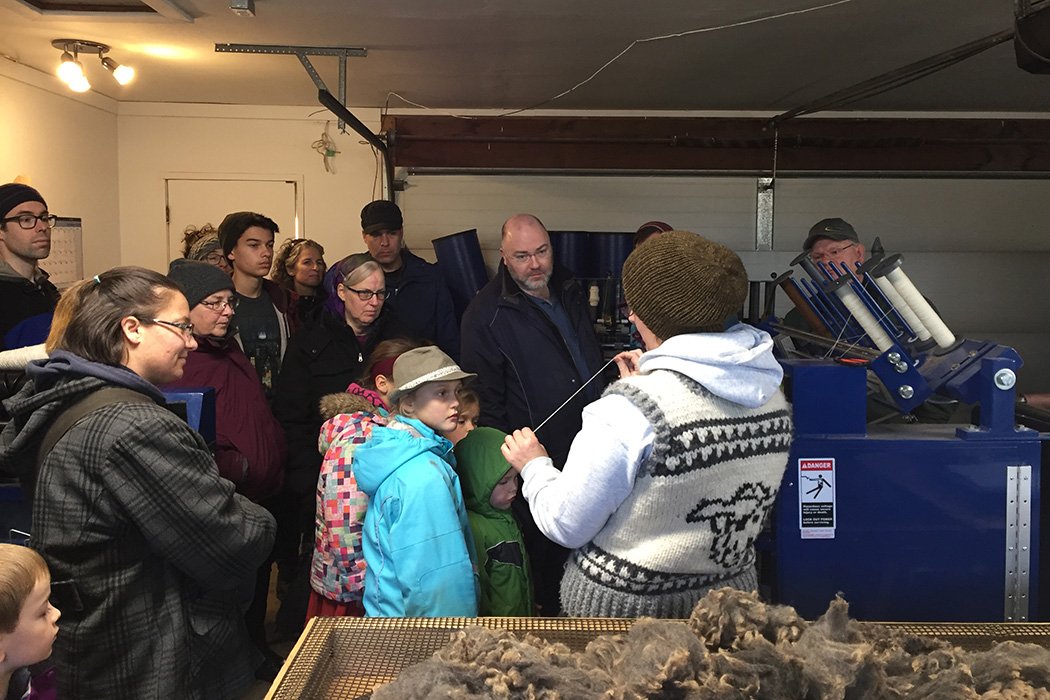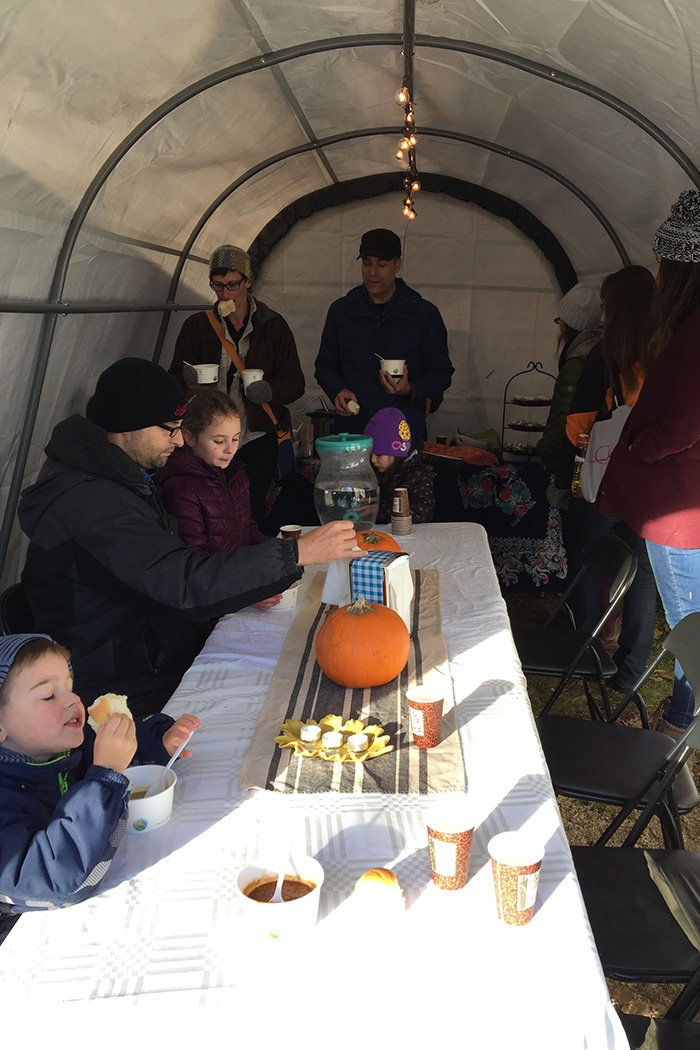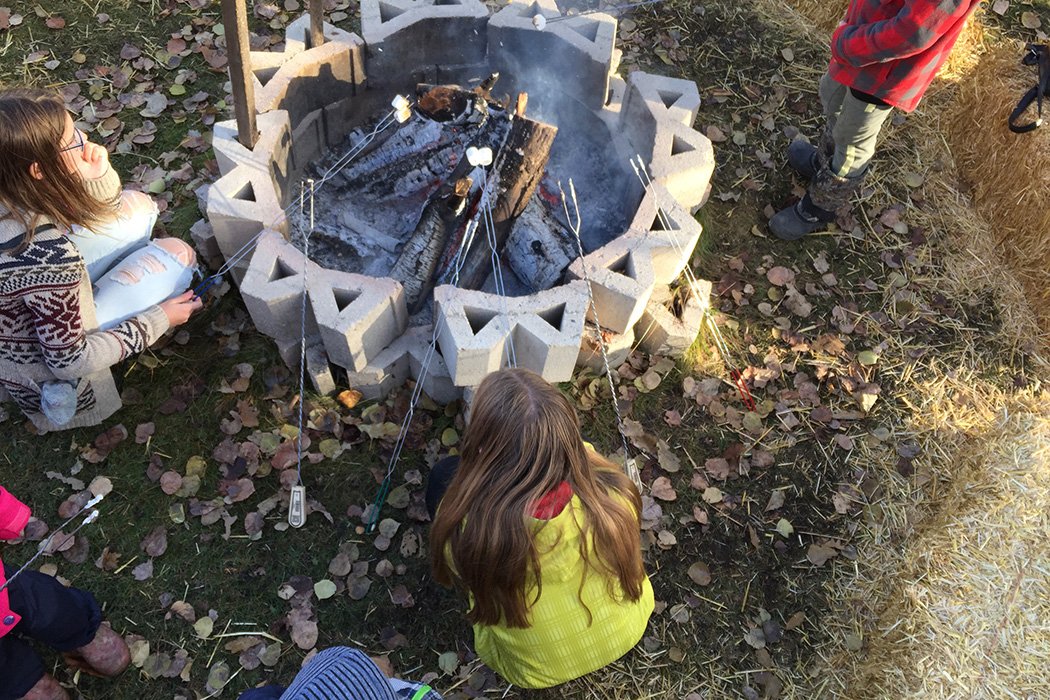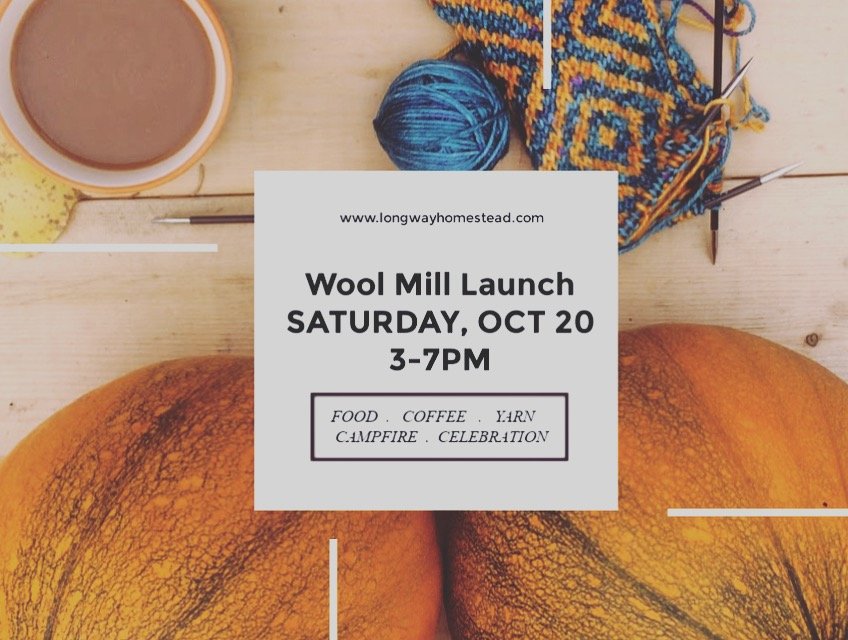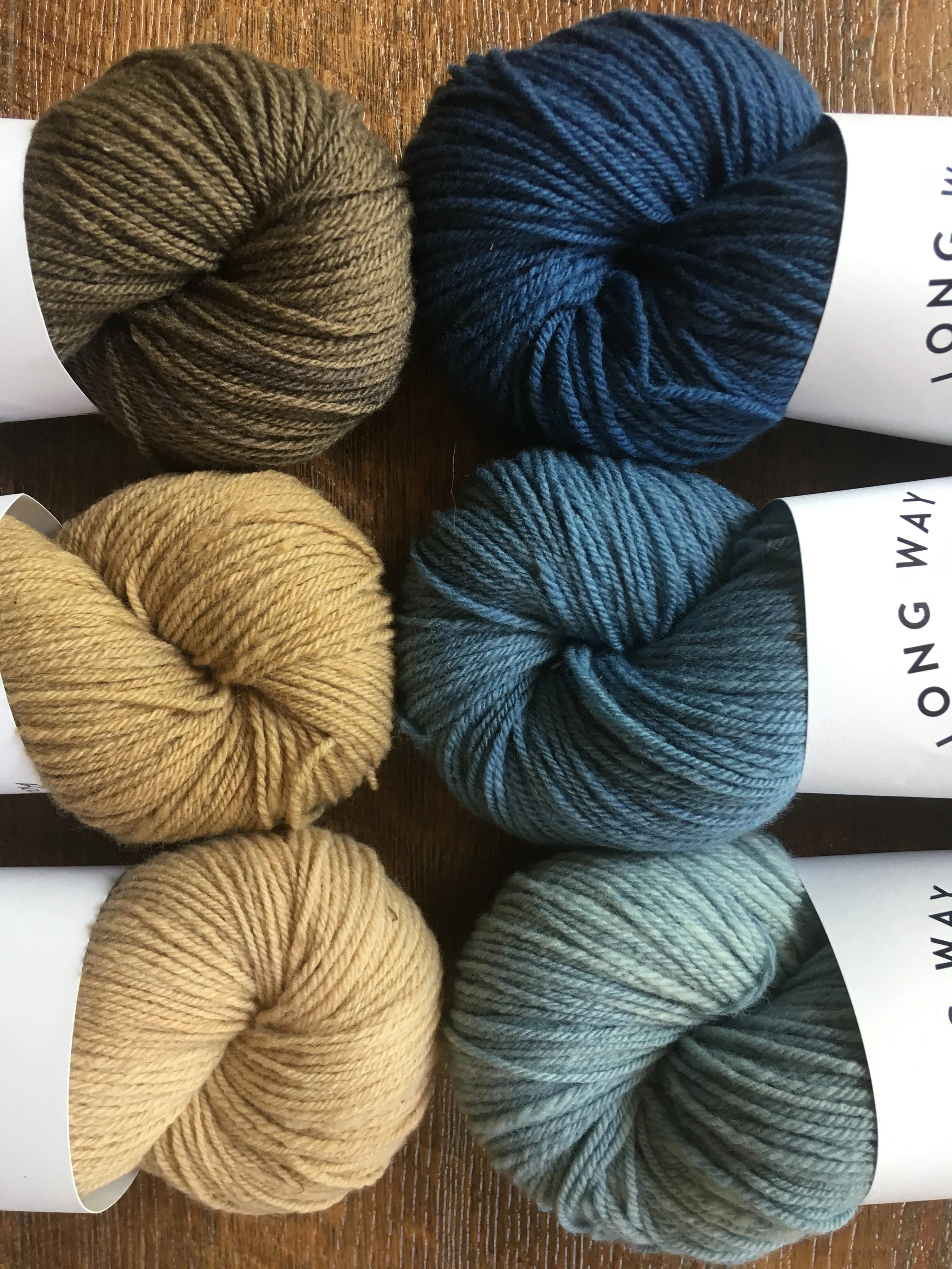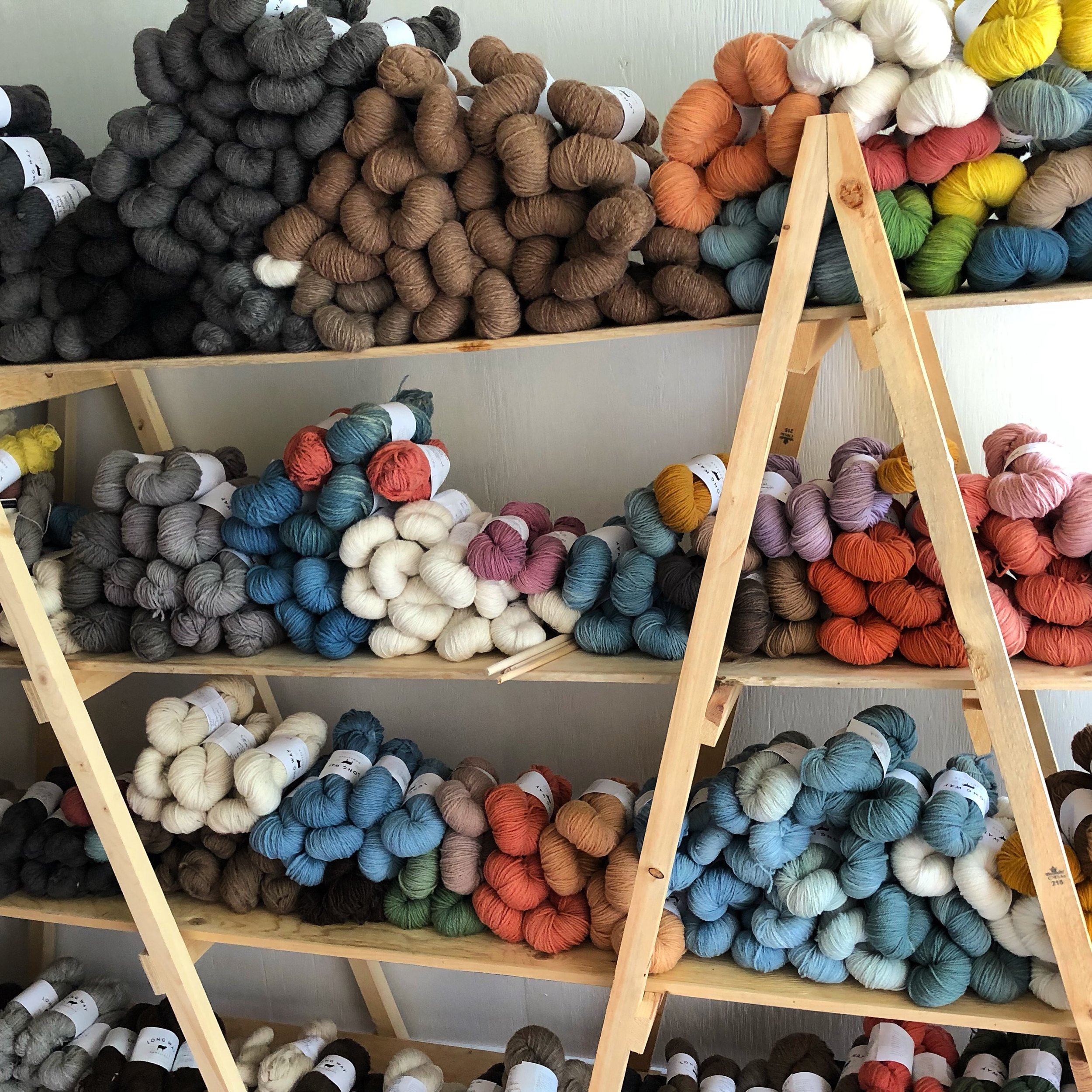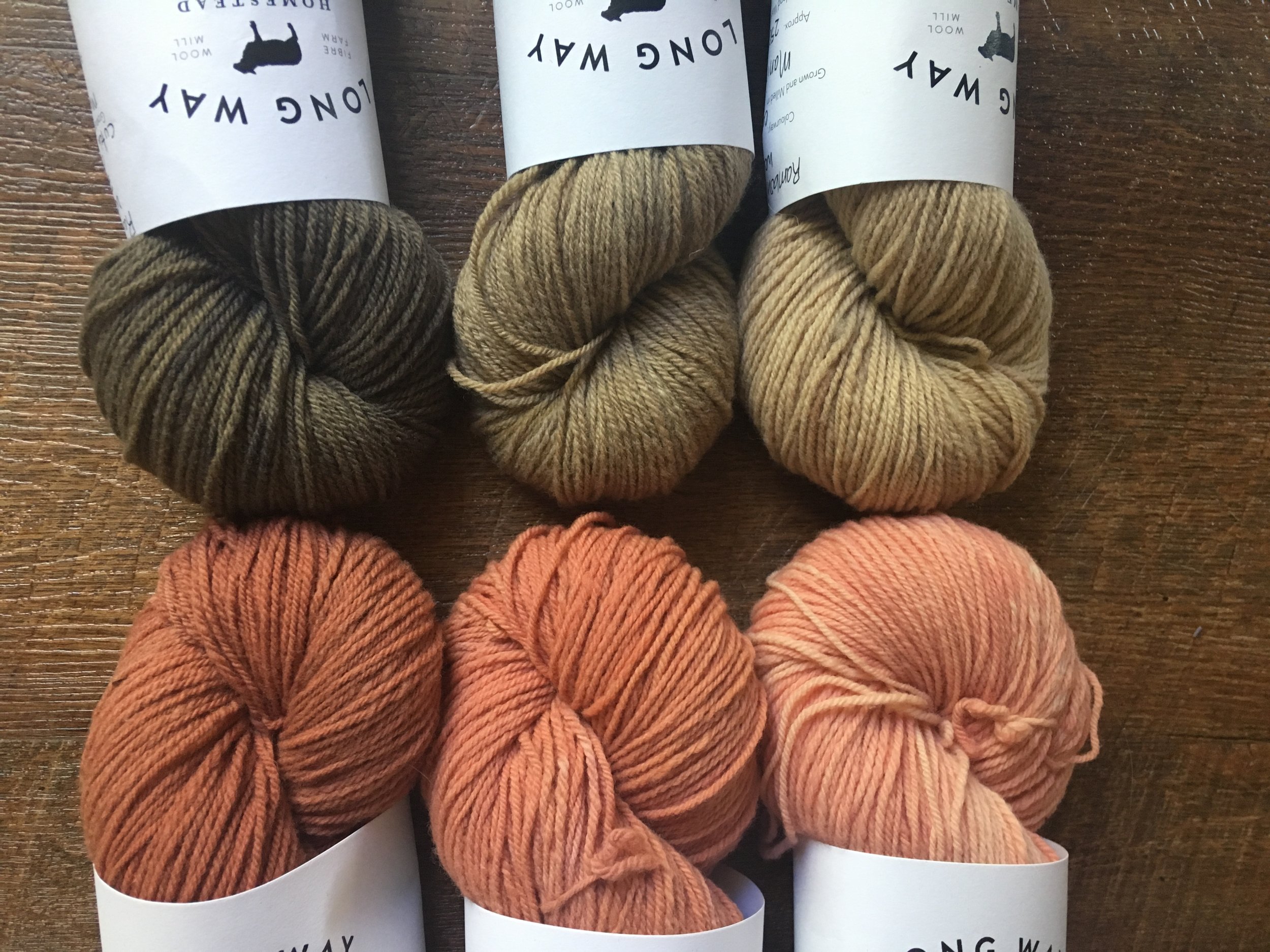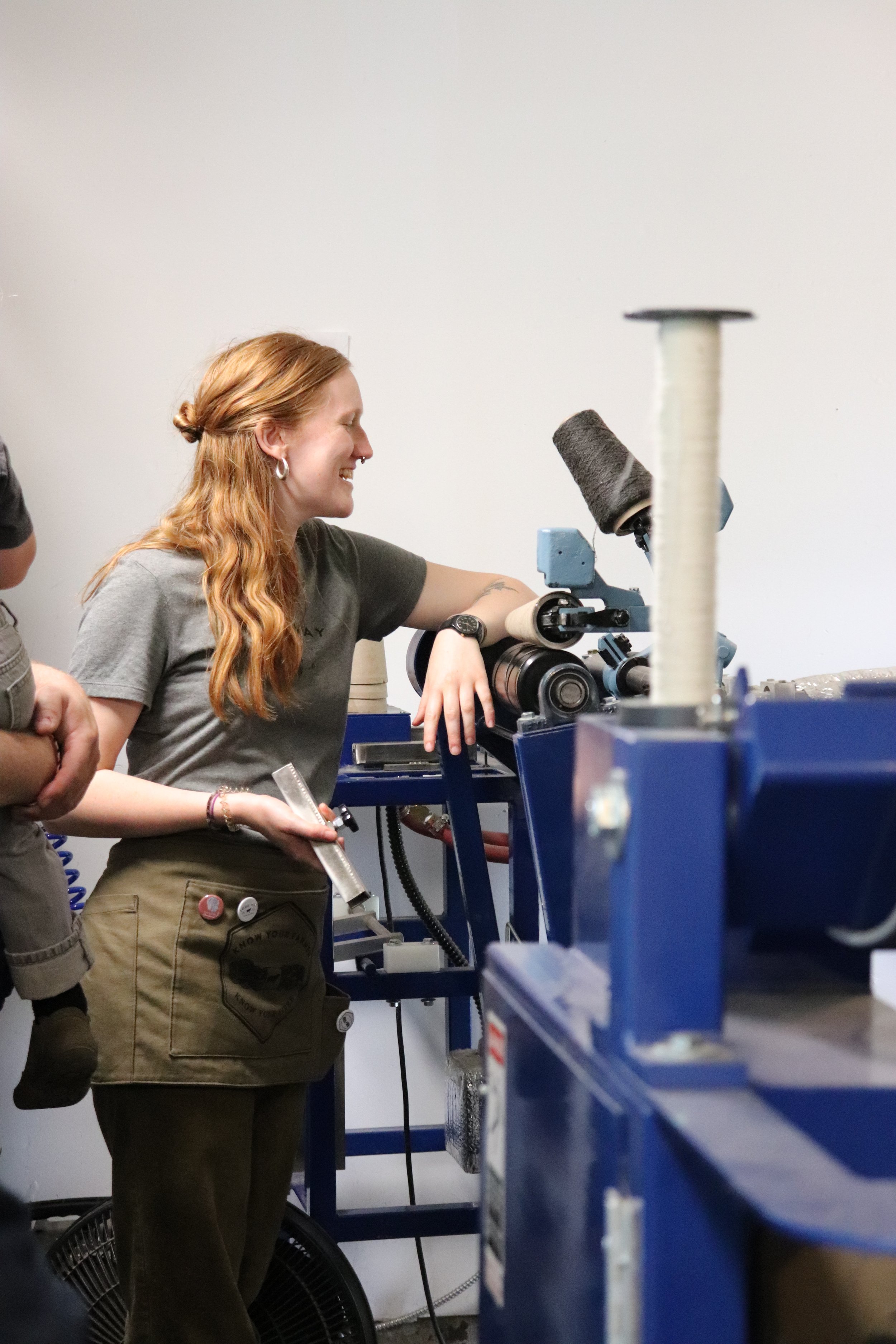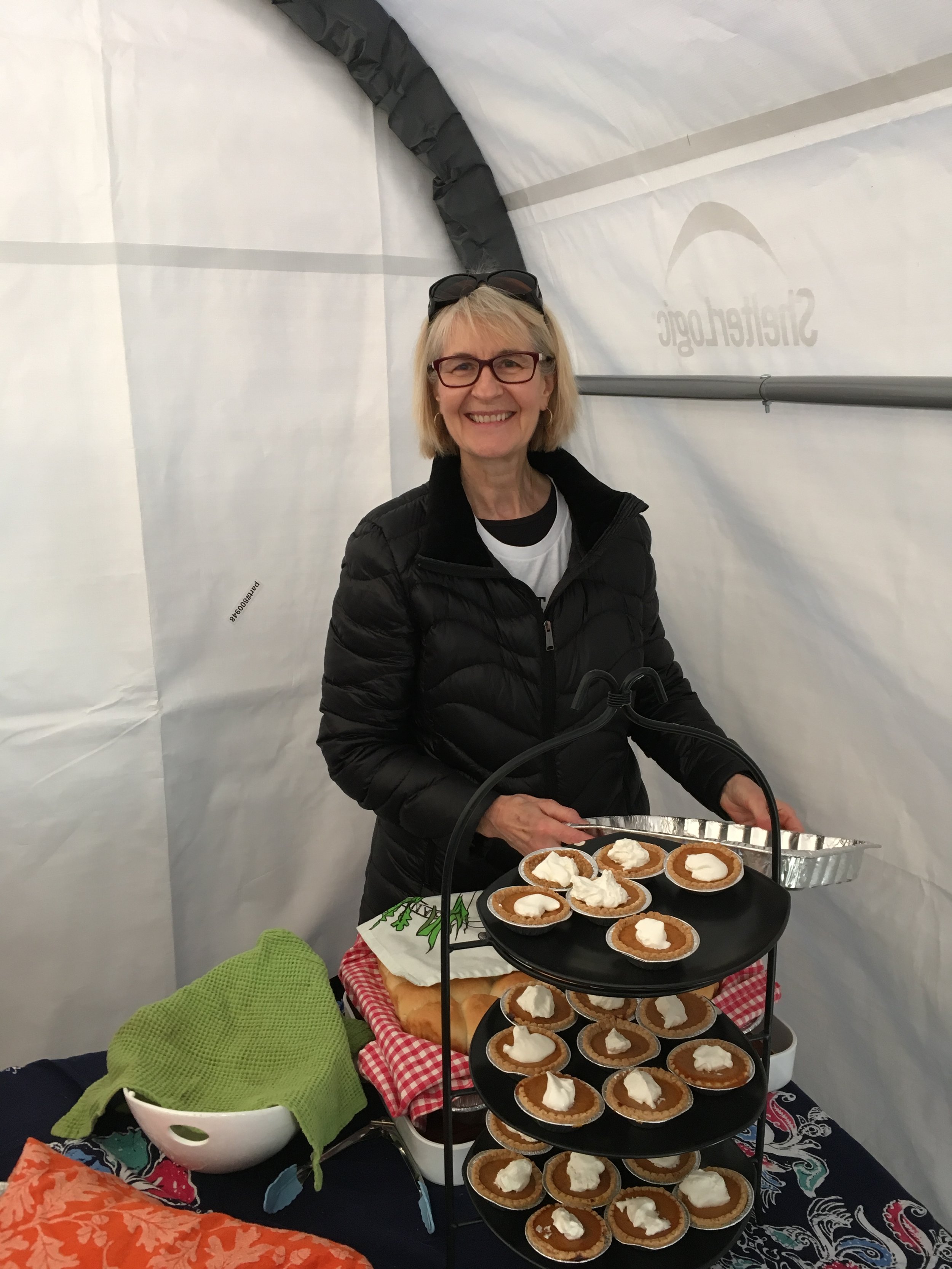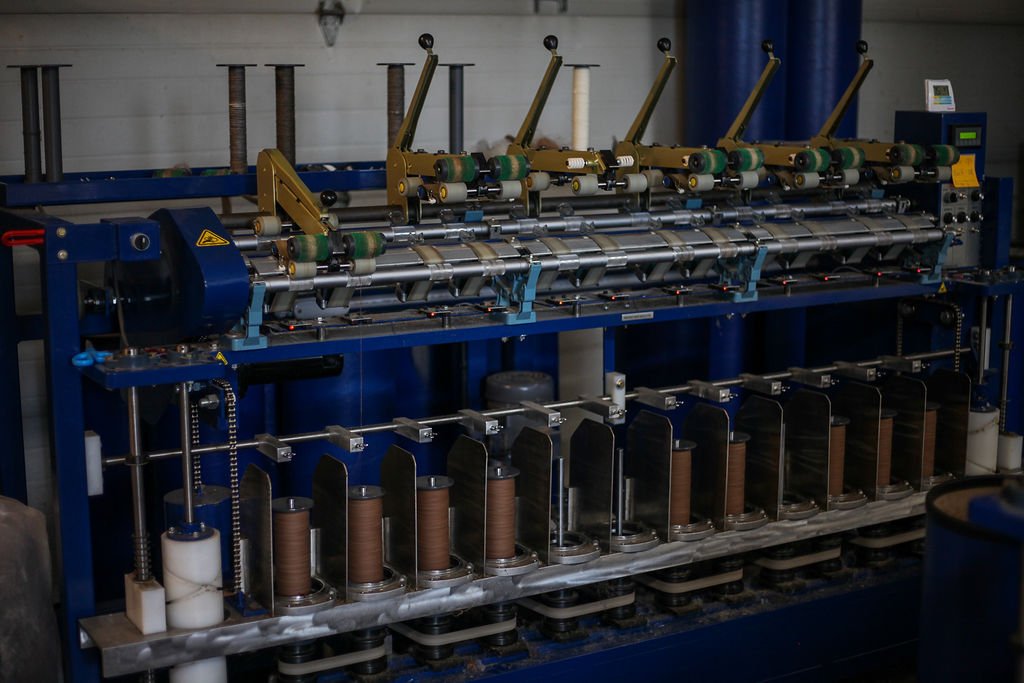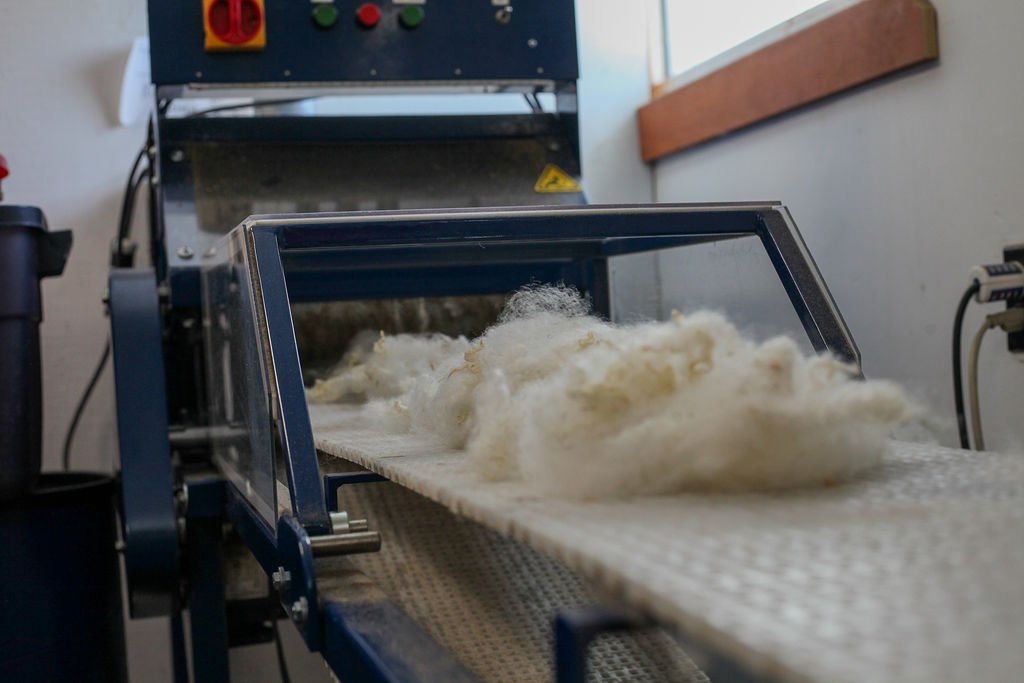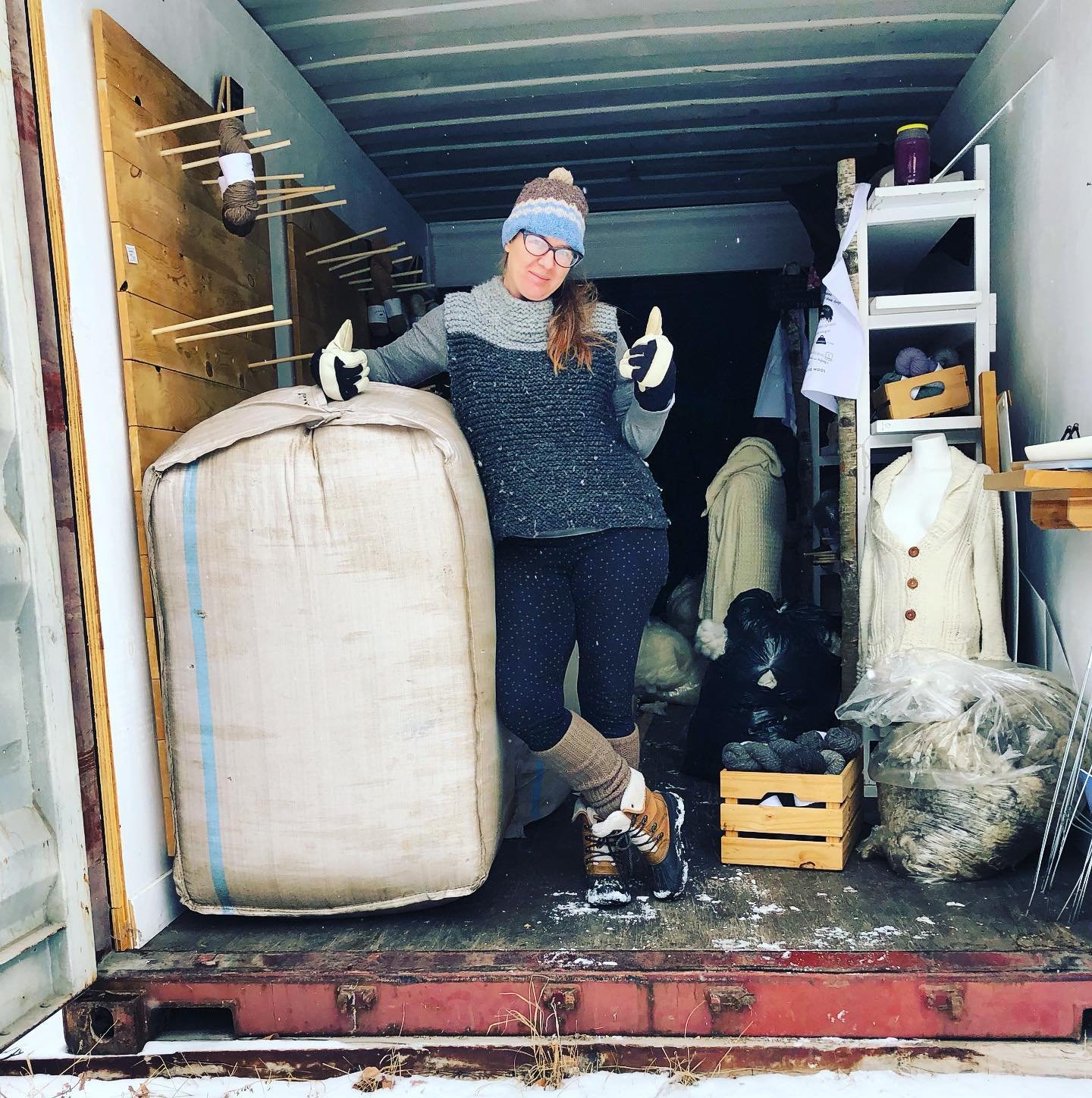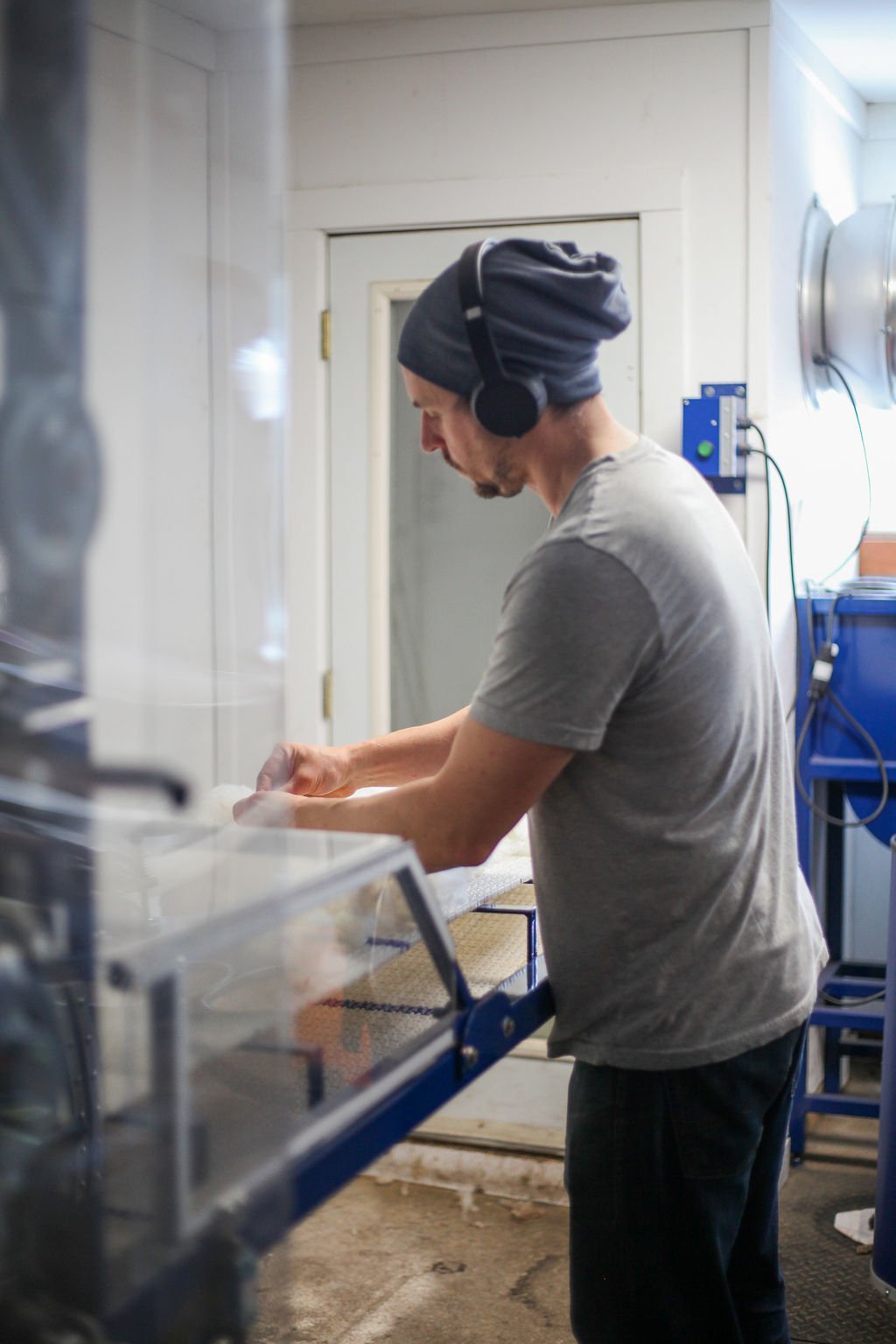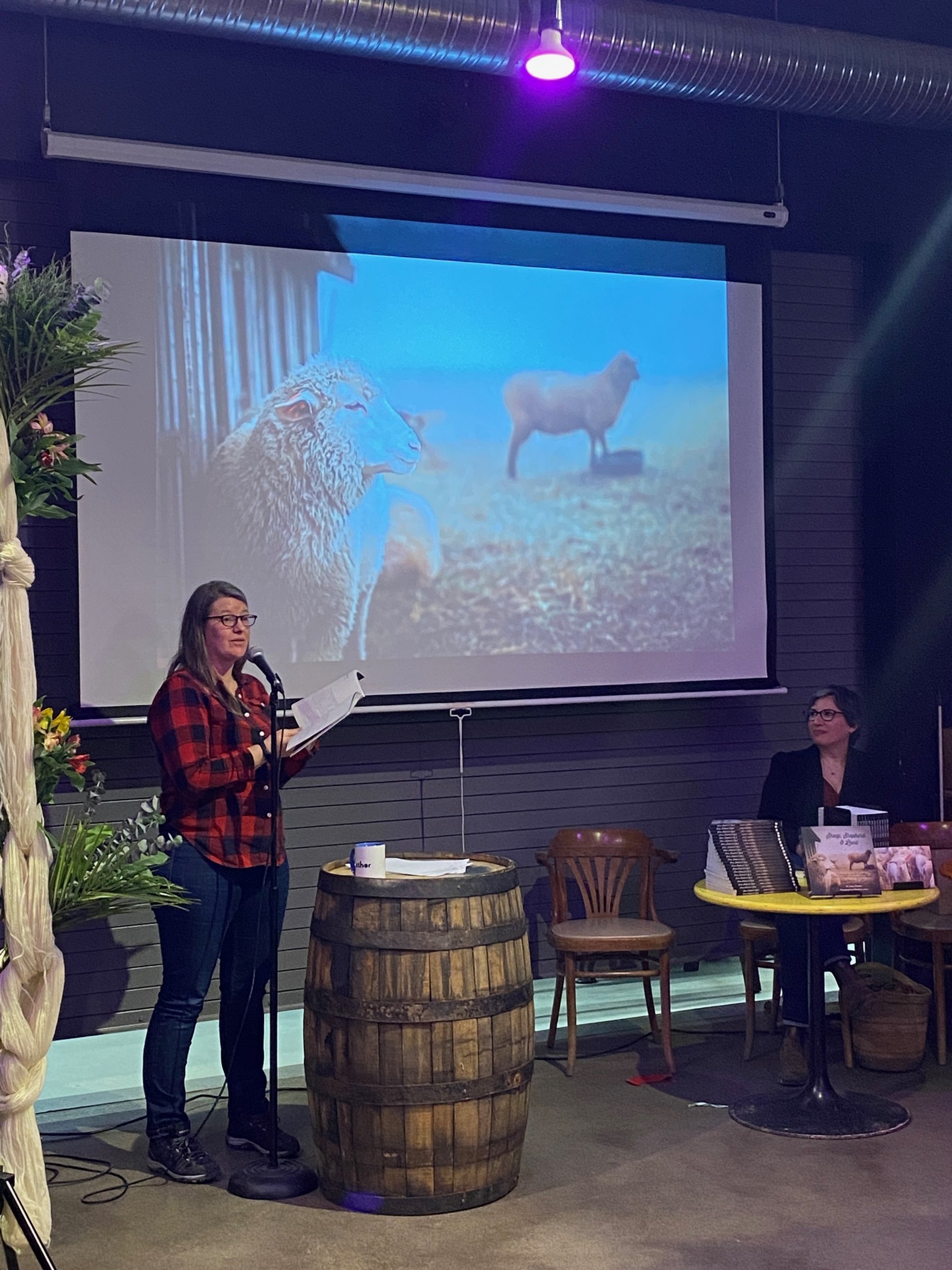We invite you to a day of celebration:
Saturday, October 14
2pm - 7pm
Long Way Homestead Farm (Directions here)
Enjoy a FREE day on the farm with sheep tours, mill tours, cozy campfire, browse our farm store and see our NEW yarn line.
Purchase a hot drink and go for a stroll through our pasture or forest and enjoy a fall day at the farm - celebrating local wool & fibre production.
Tickets are available for the Field to Fork Dinner Fundraiser from 5pm - 7pm that evening.
I wanted to share a bit more about the last five years and the evolution of our mill. But I also wanted to share some reflections on how our mill has impacted the broader farming/fibre community and why I think mills are so important (and why we need more of them).
We realized that in order to be able to open up our mill with the smallest financial investment we needed to put it in our existing 2-car garage. Luke renovated the garage to fit the mill and it was an ‘all-hands-on-deck’ situation with the kids taking turns sweeping and helping out. It took us 2 months to prepare the space for the mill.
On July 18, 2018 our full mill arrived from Belfast Mini Mills in PEI. Under the excellent tutelage of Jeff we were making yarn by the end of our second day. We were elated - and no idea the uphill battle in front of us to actually making yarn!
Then on a beautiful fall day, October 20, 2018 we were supported and surrounded by our community who showed up to launch our new mill - it was an amazing day and we were so grateful for all of you!
We started experimenting with new lines of yarn and new naturally dyed colours. We have also had so many folks work with us at the farm (pictured is Nicola Hodges, my amazing mom - Gail Hunter, and Alexa Ludeman of Tin Can Knits. And many others who have worked in the mill or helped with workshops and putting on events. This has truly been a group effort - and we are so grateful for those that have contributed!
It hasn’t all been easy. The learning curve for starting a wool mill is steep - and there aren’t any easy answers. There are no mill training classes, and often the challenges of working with a dynamic fibre and machinery is slow and isolating.
Between 2018 - 2020 we worked non-stop to try and figure out how to produce a quality and consistent product - while having to maintain business loan pressure and the day-to-day demands of the farm and the mill. It definitely felt at times like we had taken on something larger than we could handle and there was no one to turn to for answers.
Thankfully things started to shift in 2020. As many of our festivals and events were cancelled (due to the global pandemic) we were set up to shift to online sales and teaching. Our Breed of the Month subscription that we had started a year earlier kicked into high gear and we were able to expand the program exponentially. This program might be one of the things I’m most proud of, here is how it’s impacted our fibre arts and farming community:
Introduced 12 unique breeds to knitters/crocheters/handspinners who previously did not have access to these breeds. Over 1000 folks from N. America have joined our Breed Specific Subscription since it started in 2019.
Supported 12-15 different farmers with yearly purchases of over 200lbs of wool from each farm for the past 5 years.
Sparked a broader interest in Breed Specific yarn and fibre among artists, crafters and knitting groups
I have taught the in-depth Breed Specific Knitting class to 238 people in the last 4 years - and have launched the online Breed Study in 2023.
The last two years we have been able to find our groove in the mill. During covid Luke shut down his own business and started running the mill - wow - he brought the efficiency in processing we needed and it freed me up to do what I’m best at - marketing the wool, working with other farmers and doing more of the education and advocacy work around Canadian wool!
This growth in our business allowed us to actually start looking towards the future and to ways in which we can help grow the industry in Manitoba and Western Canada to be even more impactful. We have talked about expanding our existing mill operation, opening up a scouring mill that will service all the mills, adding a knitting or weaving mill to our operation, expanding our physical location so we can do more training for those wanting to open up their own mills and work more as an incubator for future mills.
All of these ideas (and more) we are considering - but we cannot expand until we have paid off the initial loan for this mill. Our mill celebration is also a way to push us over the finish line of that loan - so we can begin to grow and expand.
Our 5-year mill-aversary party will be free for anyone that wants to come enjoy an afternoon at the farm, tour the mill, hang with the sheep and check out our new yarn.
The Field to Fork dinner will be a paid event to help us reach our goals to expand LWH and to feature some incredible local food from other local farmers.
You can buy a ticket for the Field to Fork meal here. And if you cannot attend but would like to contribute you can always make a donation. (All proceeds from the weekend will go directly to mill expansion plans)!
One of the biggest things I’ve learned in the last 5 years is the many ways in which access to fibre processing can be beneficial to community (fibre arts, farming, textile, fashion communities). The goal when we opened the mill was to ‘meet a need’ among other sheep and wool producers - I had no idea how important this need was and how having access to a fibre processor can ignite a small-scale textile economy in a region.
This isn’t to promote our mill specifically - but to highlight the importance and need for mills in ALL communities. It creates an opportunity for farmers to get their product to market and the ripples within a community are far-reaching. Here is a brief look at the impact the mill has had in our community in the last 5 years:
Processed 2954.29lbs of wool and other fibres for 68 farmers or sheep producers
Processed 274.26lbs of wool and other fibres for 26 fibre artists in our Province.
Provided 5 indy dyers with 270.69lbs of yarn for test batches and future supply.
Worked with 6 small-scale wool brokers producing 213.55lbs of wool
Spun 186.64lbs of wool for in-house yarn for 3 community based yarn stores.
In total that is 3890.43 lbs of wool that we have transformed into marketable products for 108 individual farmers/businesses. When farmers, wool brokers, indy-dyers, yarn stores and fibre artists have access to local processing we see an increase in local fibres, yarn and other products in our fibre/textile industry.
In addition to our custom processing we have purchased more than 8000lbs of raw wool from local Canadian farmers for our own line of yarn. This supported local farmers and put locally grown yarn in your hands!
Now, if I add it all up it’s a fairly small amount (nearly 12,000lbs) of wool - it’s a drop in the bucket when we think of the nearly 3 million pounds of wool grown in Canada every year.
But without local mills then that wool/fibre isn’t processed at all - or its shipped far and wide for processing. Our small drop in the bucket can lead to an even bigger ripple.
That’s why we hope you will continue to support our mill and our plans for growth and support other mills in your community. We took a risk in 2018 that a mill would be supported and needed in our region - and we were right - now we look towards the future and how we can grow our mill, and the Canadian Wool industry as a whole.
